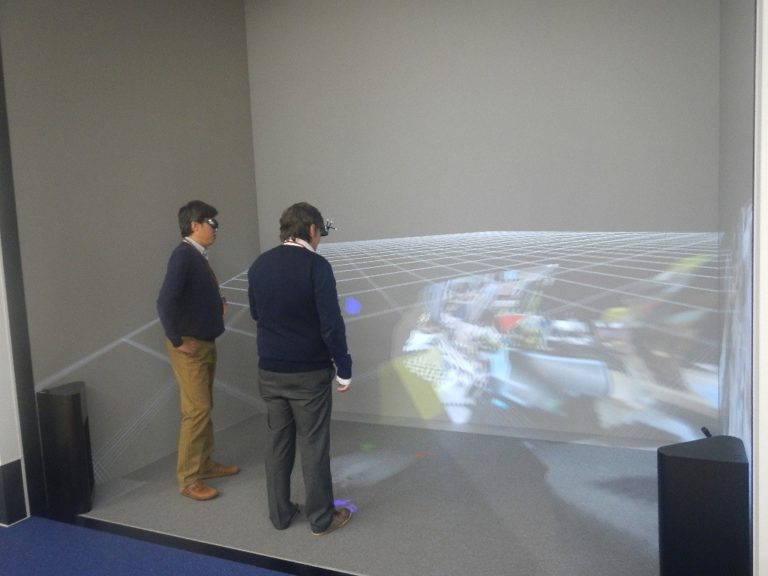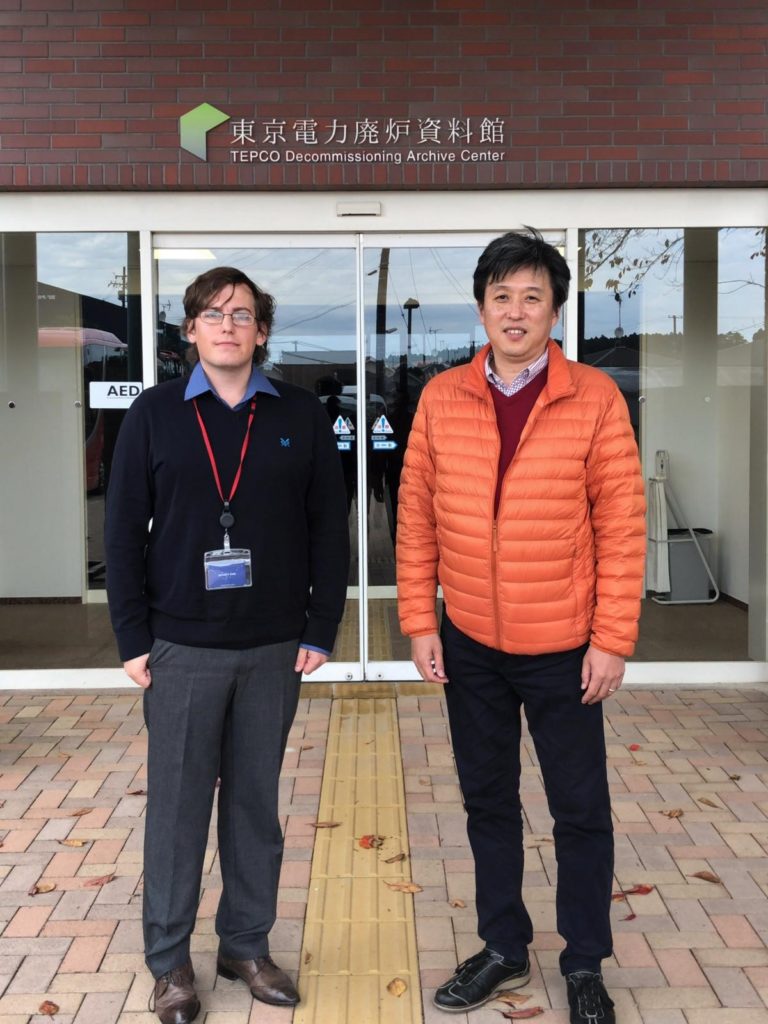Rain researcher Dr Thomas Wright has recently undertaken a secondment at the Collaborative Laboratories for Advanced Decommissioning Sciences (CLADS) in Japan. This work forms part of an ongoing collaborations with the Japanese Atomic Energy Authority (JAEA) and University of Tokyo, formed by the University of Manchester and continued through the RAIN Hub.
This secondment was focused on aiding efforts to characterise and understand the current state of the Fukushimi Daichi Nuclear power station, which was severely damaged during the 2011 tsunami. Using sensors already available on robots that are deployed inside the power stations, the aim of the work was to investigate the possibility of using Simultaneous Localisation and Mapping (SLAM) algorithms and images from a camera, to give a robot operator a greater understanding of the environment whilst running a mission. This involved using images captured from a camera to be processed by a visual SLAM algorithm to generate a point cloud before using this point cloud and the original images to generate 3D meshes with the images overlaid. Operators could then view the environment inside a virtual reality simulator, giving the ability to manipulate and walk through the representation of the environment to gain a greater understanding.

Generating meshes from images is not a new idea, the main focus was to create rough representations in a sub-minute time frame. Traditional methods, whilst producing more accurate representations of an environment, are often much slower to generate. This improvement allowed for the software to be run during deployment, with operators only having to make brief stops whilst mesh generation occurred. It was also found that, although rough, the meshes could be produced from a much smaller number of images than the photogrammetry or structure from motion tools being used for comparison.
 During this trip, time was taken to present the work currently being done by members of the RAIN Hub, discuss common challenges facing both UK and Japanese nuclear decommissioning and promote collaboration between the two organisations. Alongside time working, several trips and tours were made to facilities such as the TEPCO Decommissioning Archive and the Naraha Centre for Remote Control Technology Development to gain an understanding of the wider problem and current efforts being made in Japanese nuclear decommissioning. For anyone who may be interested in being involved with such collaborations, the CLADS research fellowships for 2020 are currently open for application, with work focusing on a range of topics facing the nuclear decommissioning community.
During this trip, time was taken to present the work currently being done by members of the RAIN Hub, discuss common challenges facing both UK and Japanese nuclear decommissioning and promote collaboration between the two organisations. Alongside time working, several trips and tours were made to facilities such as the TEPCO Decommissioning Archive and the Naraha Centre for Remote Control Technology Development to gain an understanding of the wider problem and current efforts being made in Japanese nuclear decommissioning. For anyone who may be interested in being involved with such collaborations, the CLADS research fellowships for 2020 are currently open for application, with work focusing on a range of topics facing the nuclear decommissioning community.